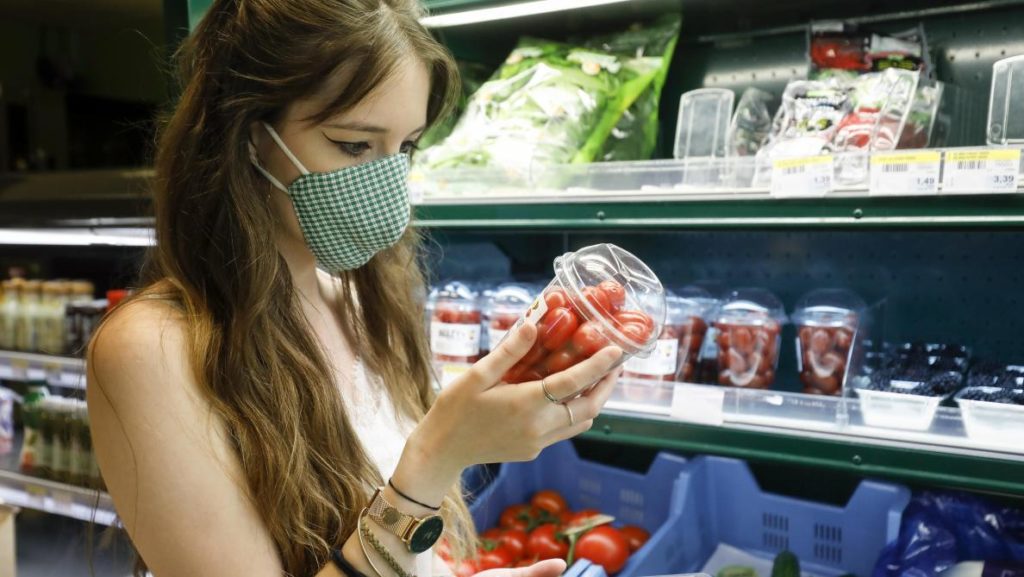The wearing of a face mask will become compulsory from Saturday in shops and some other indoor spaces where people gather.
The decision was announced yesterday after a meeting of the consultative committee made up of representatives of the federal and regional governments, and comes after increasing pressure from the medical world.
And pressure has been growing as news spread of a widespread opinion among scientists that the coronavirus Covid-19 can be spread by aerosol transmission. If that is the case, and the World Health Organisation is also coming around to the idea, then a 1.5m social distance would not be enough to stop the spread of the disease. But the widespread wearing of face masks would help a great deal.
The order to wear a mask in public comes into force at midnight tonight and will be in effect until further notice. The details of the rules can be modified at any time in the light of the epidemiological situation in the country.
The obligation to wear a mask which covers the mouth and nose applies in most indoor spaces where people gather. That includes shops and indoor shopping centres; cinemas, theatres and concert halls; conference spaces and auditoriums; museums and libraries; and places of worship.
The wearing of a mask in other situations is “strongly advised,” said the office of the prime minister in a statement.
Mask-wearing is already obligatory in a number of situations, including hospitals and clinics; public transport vehicles, stops and stations; visitors to doctors and dentists; and for those exercising a contact profession, including hairdressers.
In none of the above circumstances is the face mask compulsory for children under the age of 12. A dispensation may be allowed for some people for medical reasons supported by a physician.
The failure to wear a mask where one is required can result in prosecution.
Unions and employers have welcomed the measure, which came as a surprise late yesterday, as people had been expecting the subject only to come up at the meeting of the national security council next week.
Danny Van Assche, managing director of Unizo, which represents small businesses, said he was surprised at the timing but welcomed the new rule. “If this was something that was thought to be a problem, then something might have been done earlier,” he pointed out.
Trading federation Comeos expressed concern that its members would be at the front line of enforcing the rule.
According to the text produced by the consultative committee, shops that fail to enforce the wearing of masks – presumably by excluding customers who refuse – risk being forced to close.
“The responsibility for wearing a mask should always lie with the customer, not the retailer,” said CEO Dominique Michel, arguing that shop staff are in no position to act as police officers.
“Legally, we do not have the ability to physically stop customers who are not wearing a masks or to expel someone who refuses,” he said.
The Neutral Syndicate for the Self-employed said it was happy the rule is to be more widely applied than only to shops.
“Targeting only stores would have been wrong, all the more so because they have really adhered to the distance rules very well, and no health problems have been identified after a visit to the store,” said chief executive Christine Mattheeuws.
And representing staff, the CSC/ACV union described the new rule as a “resounding victory”.
“We have been advocating face masks since Day One to increase the safety of shop staff and all customers,” said ACV representative Kristel Van Damme.
Alan Hope
The Brussels Times

